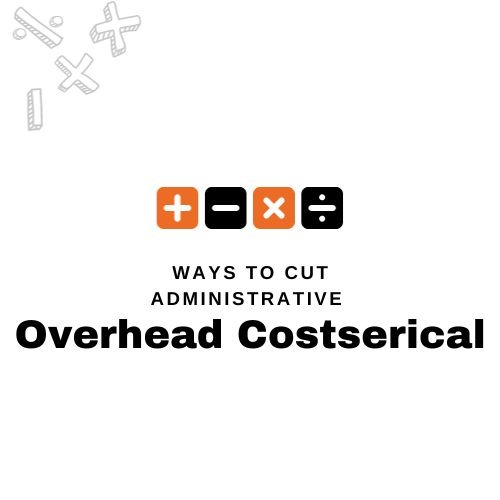It seems like how large or how small a business is these days, operating costs are always increasing every year. Employee wages and salaries, building rent, office supplies, depreciation and insurance are just some of the administrative costs that companies incur.
As these costs continue to increase, it can be challenging at times for some businesses to keep up with them. Prices keep going up, but profits don’t always match that same level. Sometimes, in order to stay in business, firms are left with no choice but to cut some of their expenses.
Fortunately, there are some great resources with helpful information to help your business reduce administrative costs. Websites, including Your City Office, business journals and professional analysts provide some insightful tips for effectively cutting down on unnecessary costs to help your company tighten your budget.
Here are a few good ways that you can cut administrative costs:
1. Reduce travel costs
Travel expenses can make up a large portion of a business’ expense budget. Instead of attending that big off-site conference, perhaps you can still conduct meetings via Skype or teleconference. Use technology whenever possible to avoid having to make unnecessary trips. If travel is essential for keeping a client’s business, then travel smartly: carpool if you can, book a reservation at a moderately priced hotel if you’re staying overnight, and stick to a sensible budget for meals and entertainment for the trip.
2. Rent your office space
This decision largely depends on your company’s size and number of locations, but if you can rent sufficient space for your employees to do their jobs effectively, the savings will definitely add up. You have a lot less up-front costs in terms of building ownership and maintenance. You can also take the time to look at the other available office space when needed, and save for buying a building later on if you so desire.
3. Let employees telecommute
Workers with active family lives hate to miss out on special moments. This is a good reason to offer the option to have your employees telecommute. They may take a little less pay and incentives in exchange to being able to work from home. It saves them time driving to and from the office, and they can adjust their schedules to attend important family events while still getting all of their work done on time.
4. Go paperless
Even though most businesses still go through a lot of paper every year, consider moving to a digital office environment. Instead of printing that memo for the weekly staff meeting, save it to a network folder on your computer. Take meeting notes on your laptop or tablet, and you’ll soon be spending a lot less on paper and printer and ink costs.
5. Cut back on entertainment
If your employees are used to lavish holiday parties or other company celebrations, this can be an area where you can save significantly. Review your budget to determine what’s feasible and get employee input as well. It’s great if you can recognize people for their hard work, but it doesn’t have to be something that’s elaborate. Simple celebrations or small prizes like gift cards, treat or company potluck lunches can still be great ways of improving morale while reducing administrative costs.
6. Check your energy bill
You might not realize it, but reducing your office’s electrical usage can be another great way to save money on overhead costs. Look at your energy bill over the last few months. Then look at what office equipment is currently in use, and what machines haven’t been used in a while. Unplug and remove, recycle or donate any computers, fax machines and other equipment that isn’t being used. Plug computers, printers and related equipment into power strips in the same rooms and turn the power strips off at night when the machines are not in use. Turn lights off at the end of the day or when leaving a room. Simple tips like these can really bring administrative expenses down.
7. Review your memberships
If your company belongs to several community groups or networking organizations, it’s time to check to see how useful those memberships really are. If they charge an annual membership fee and aren’t being used, don’t renew them. If they are important to your business, check to see if only a few employees need to join a particular group. If there are magazine or business publication subscriptions for the office, check those costs as well. If they’re not necessary or aren’t being read, they can be cancelled to help save money.
These are just a few effective ways to help reduce your administrative overhead costs. Review your budget carefully. If you need to reduce headcount, then do so carefully. If not, consider these and other options to bring your expenses to levels that allow you to operate successfully, retain your best assets and continue to pursue increased profits.

